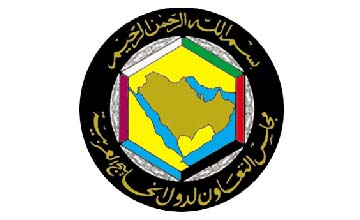ID :
380455
Tue, 09/15/2015 - 11:59
Auther :
Shortlink :
http://m.oananews.org//node/380455
The shortlink copeid
GCC financial institutions remain well capitalized

Kuwait, Sept. 15 (BNA): Banks in the GCC countries appear to be properly capitalized and to have their loan portfolios relatively well diversified, a report said Monday.
However, the link between government and banks is strong, on both the asset side and the deposit side, Asiya Capital Investments Company said in its economic report, noting that government related-deposits account for between 10 percent and 35 percent of non-equity resources.
Given the GCC's heavy reliance on oil in government spending, a hypothetical downturn could affect bank lending across the board, hurting profitability, and ultimately solvency, it said.
In the current period of low oil prices, the willingness of GCC countries to maintain government spending by reducing surpluses or running deficits will act as a buffer for the banking sector, but the opportunity to diversify
further and shield banks as much as possible should not be missed, the report indicated.
The report also said that credit cycles have been proven to be behind many economic booms and busts, noting that the basic notion is that in periods of intense borrowing; economic growth will accelerate.
However, without sufficient productivity improvements, debt will accumulate, and debt-fueled growth will come to an end, it said, adding that the legacy of the debt boom will be unpleasant, in most cases, as households
and corporations will enter a period of deleveraging, which will hold economic growth lower until their balance sheets are restored.
Prudential regulation came under close scrutiny after the bust of the last financial crisis, the report said, stressing the importance that the health of the financial system should be permanently checked in order to prevent the accumulation of imbalances that would ultimately lead to an economic downturn.
Solvency, one of the most followed parameters in banking, refers to the capacity of meeting long-term obligations, it added. An economy with solvent banks is less likely to suffer a financial crisis, it noted, pointing out that capital ratios, deposit ratios, and distribution of liability's maturities are amongst the main solvency measures, the report said. It also said that GCC financial institutions are well capitalized by international standards, noting that Saudi Arabia led the capital-to-assets ratio (CTA) in the GCC in 2014, at 13.7 percent.
Kuwait had the lowest CTA of the GCC, at 11.3 percent, but was still resilient compared to the OECD average of 7.3 percent, dragged by European banks, added the report.
According to Moody's, GCC banks enjoy a wide deposit base, ranging between 60 percent and 90 percent of total liabilities, allowing a lower dependency on interbank markets and improving their stability and profitability.
These factors are the main reasons behind the high credit ratings of GCC banks awarded by agencies such as Moody's and Fitch. Asset quality is also crucial in banking. Indicators such as the non-performing loans ratio (NPL) are a good quality gauge, and GCC countries are well positioned by international standards.
OECD's NPL ratio stood at 3.5 percent of total assets. All GCC countries registered lower values with the exception of the UAE and Bahrain, with NPL ratios of 6.5 percent and 4.6 percent respectively.
A coherent distribution of assets across economic sectors is also crucial in order to diversify risk. In most GCC countries, it is observed that lending to the real estate sector lies between 10 percent and 20 percent of total
credit, prudent values when compared with the US's 33 percent.
However, there are cases of imbalances. In Bahrain and Oman, credit to consumers is relatively high at around 40 percent, and in the case of Qatar, lending to the government is relatively large accounting for 32 percent of
outstanding loans.
In terms of total assets, the UAE and Bahrain also register a high exposure to the public sector, with 14 percent and 13 percent of total assets respectively, Kuwait News Agency reported.





